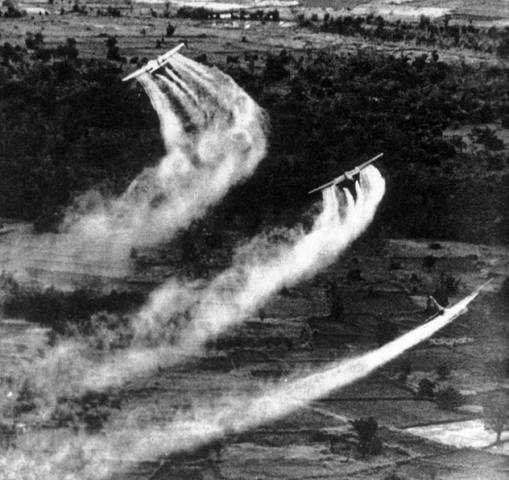Prostate Cancer in US Veterans Linked To Agent Orange

A new study published online today in the journal Cancer shows a link between prostate cancer in US military veterans and exposure to the herbicide Agent Orange, says a Wiley press release.
Agent Orange was used during the Vietnam War as an herbicide and defoliant, in order to destroy forests and deprive guerilla fighters of cover. It contains dioxin, a potential carcinogen. Over the years, studies have linked Agent Orange exposure to higher rates of various cancers, nerve and digestive disorders, and skin and respiratory problems in US veterans. The US Department of Veterans Affairs recognizes several diseases and conditions as possible consequences of exposure to Agent Orange, and offers disability compensation and survivor benefits to Vietnam-era veterans or their families affected by these diseases. And since the late 1970s, several lawsuits have been filed against the manufacturers of Agent Orange, including Dow Chemical and Monsanto.
In this newest study, the team analyzed data from a group of 2,720 veterans, and diagnosed 32.9 percent of them with prostate cancer. Another 16.9 percent had high-grade prostate cancer, the press release says. Agent Orange was linked to a 52 percent increase in the overall risk of detecting prostate cancer. The researchers did not link Agent Orange to an increase in low-grade prostate cancers, but did find an association with a 75 percent increased risk for high-grade prostate cancer.
"The current results indicated that an increased risk of [prostate cancer] associated with [Agent Orange] is driven by an increased risk of [high-grade prostate cancer] in men who undergo an initial prostate biopsy," the researchers write in their study. "These findings may aid in improved [prostate cancer] screening for Vietnam-era veterans." The researchers believe Agent Orange exposure status should become a factor in prostate cancer screening for US veterans. This could allow for earlier detection and treatment of high-grade disease, and possibly improved survival rates, the statement adds.
Source: Ansbaugh, N, Shannon, J, Mori, M, Farris, PE, Garzotto, M. Agent Orange As A Risk Factor For High-Grade Prostate Cancer. Cancer. 2013. DOI: 10.1002/cncr.27941. Accessed May 13, 2013.



























